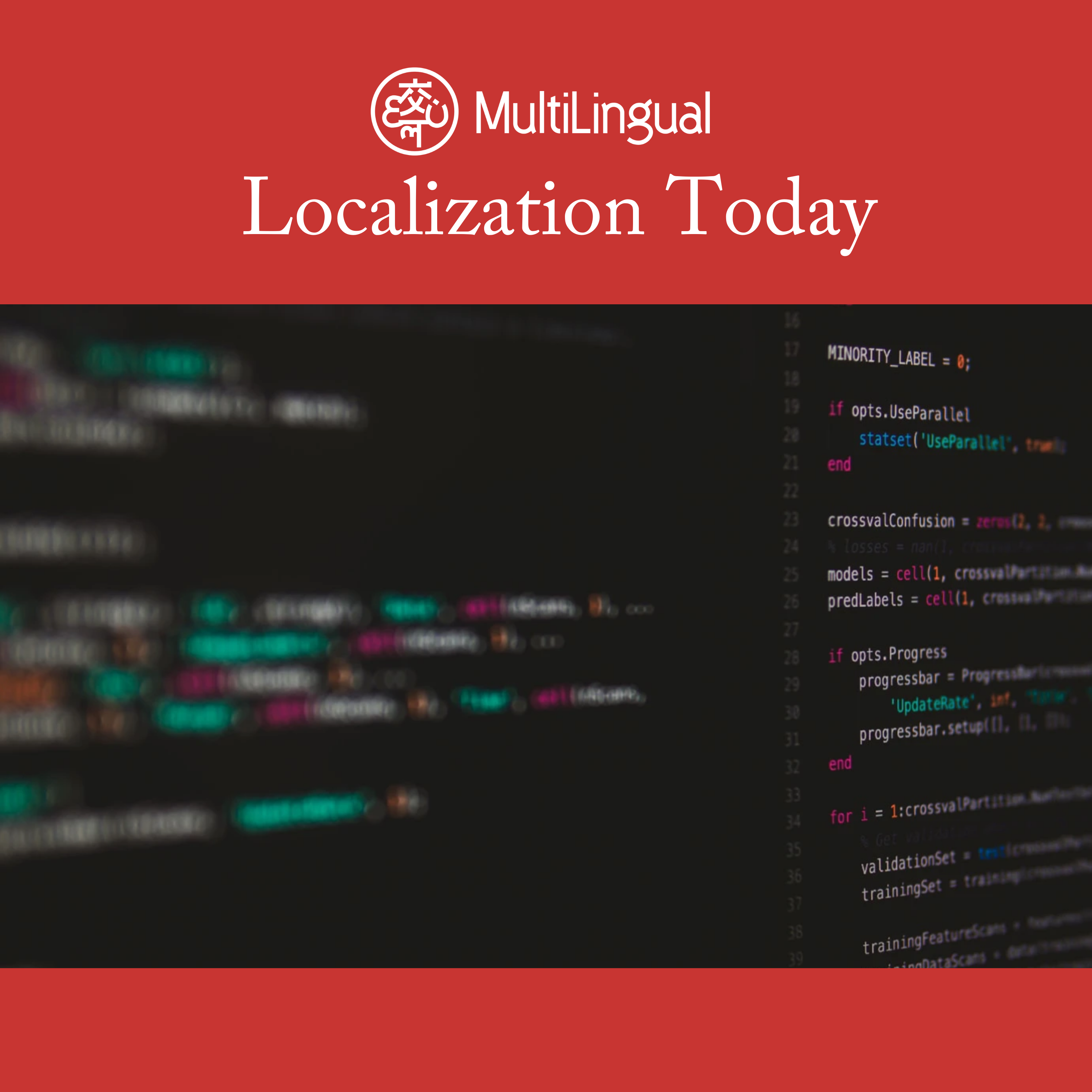Episode Transcript
[00:00:00] The language of diplomacy insights from diplomatic interpreter lef Terras Kaffados by Mimi Moore in a world where words have the power to unite enemies or ignite conflicts, language shapes diplomacy in profound and far reaching ways.
[00:00:15] In that sense, diplomatic interpreters act as unseen pillars supporting global diplomacy.
[00:00:21] Their expertise ensures clear communication between nations, enabling leaders to engage in meaningful dialogue and negotiate critical agreements. History shows us the importance of precise and nuanced communication in shaping international relations.
[00:00:36] For instance, the Treaty of Versailles, which ended World War one, was drafted in multiple languages to ensure clarity and mutual agreement among the allied powers and Germany.
[00:00:47] Similarly, during the Congress of Vienna in 1814 to 1815, diplomats from various european nations negotiated territorial disputes and established a new balance of power. Interpreters and translators played major roles there, as well as at many other pivotal moments in history.
[00:01:06] We often think of international diplomacy during crises, but diplomats and their interpreters quietly work on a daily basis to maintain peaceful and productive international partnerships.
[00:01:17] To gain insight into this little known field, multilingual spoke with diplomatic interpreter lef Terris Kaffados Kaffodo served as a full time english japanese diplomatic interpreter for the United States US Department of State from 2016 to 2021, often facilitating talks between high ranking officials such as the american president and the japanese prime minister.
[00:01:41] Having resigned from his position for family reasons, Kaffeto still serves the State Department as an independent contractor. Journey to interpreting Kaffatos path towards interpreting began with japanese classes at the University of Hawaii, where he witnessed his professors using language as a vehicle to teach about culture.
[00:02:01] At the recommendation of a professor, Kafatoz applied to the Japan Exchange teaching program.
[00:02:07] While teaching in Okinawa, Japan, he realized the impact that effective communication could have an overcoming bias and encouraging understanding across cultures.
[00:02:17] He went on to study at the Inter University center for Japanese Studies in Yokohama and later worked as a japanese english translator in Tokyo. Upon his return to the US, Kafatos was working as a translator at a bilingual newspaper in San Francisco when he was asked to interpret for two former airmen from the Japanese Imperial Armys special attack unit known in the west as kamikaze, men who had survived World War Two and their countrys militarism against all odds. At a screening of a documentary about their lives, Cafodos helped them share their stories with an audience of english speaking journalists.
[00:02:53] When I saw misconceptions and stereotypes melt away through the telling of their stories, I was hooked, Cafetos says. I saw that my language abilities could be useful in helping others express themselves.
[00:03:06] Thats when I knew I wanted to be an interpreter in pursuit of diplomacy, cafetos enrolled in the Japanese English Conference Interpreting Masters degree program at the Middlebury Institute of International Studies in Monterey, California. My time in Japan was important for building my language skills, but my training at Miis was crucial to becoming a diplomatic interpreter, he says.
[00:03:31] Interpreter training is rigorous and comprehensive.
[00:03:34] The MIIS curriculum includes courses on linguistics, translation theory, and the principles of interpretation.
[00:03:42] Students receive intensive practice in consecutive and simultaneous interpretation, site translation, and note taking techniques. They are also expected to undertake in depth study of the cultures associated with the languages to enhance cultural competence and sensitivity. Real world simulations of diplomatic scenarios are part of the program, allowing for practice in settings that mimic the actual conditions they will encounter in their professional roles. After graduation. It can take time to land a diplomatic interpreter position, especially when seeking a full time us government position, of which there are few.
[00:04:19] It took a couple of years for me to complete all the application steps, Kaffodo says.
[00:04:25] I think people considering this career should be aware of this long process and temper their expectations.
[00:04:31] This is not a good career for impatient or thin skinned people, nor for perfectionists, given how much time the process can take. Cafodos recommends having a source of income while completing the tests and paperwork. He also notes prospective interpreters must undergo extensive background checks, which some may consider intrusive.
[00:04:53] Overall, he advises patience and resolve, as these traits are crucial for building a career in the field. Inside the state Department according to the state departments website, the Office of Language Services was founded 1789 by then Secretary of State Thomas Jefferson.
[00:05:11] It is one of the biggest employers of interpreters in the country, with many clients within the us government, including the offices of the president and the secretary of state. OLS provides language support for diplomatic activities, high level meetings, international summits, and official state visits. OLS also supports exchange programs like the International Visitor Leadership Program, which brings foreign leaders to the US to meet with their american counterparts.
[00:05:41] Cafetos got his start in diplomatic interpreting for IVLP. OLS has two main linguistic interpreting and translation.
[00:05:50] The interpreting division handles interpretation for diplomatic engagements with both staff interpreters and over 700 contract interpreters who provide consecutive simultaneous and liaison interpreting services.
[00:06:03] The translation division manages the translation of written documents such as treaties, agreements, and official correspondence.
[00:06:12] Due to the high demand for language services and the variety of languages needed, OLS relies heavily on highly vetted freelance linguists. These contract interpreters and translators are critical in handling the volume of work that cannot be met by staff alone.
[00:06:28] In Cafetos case, he worked as a freelancer for several years before eventually becoming a full time staff interpreter. A day in the life diplomatic discourse often involves technical jargon and specialized terminology related to international law, trade agreements, and geopolitical issues.
[00:06:48] Interpreters must be well versed in these areas to ensure accurate and meaningful translations.
[00:06:53] Misinterpreting a single word or phrase can lead to significant misunderstandings, potentially jeopardizing negotiations and diplomatic relations.
[00:07:03] That's why preparation is key to successful interpretation.
[00:07:07] Cafeto starts preparing well before the actual interpreting assignment. His first step is to thoroughly research the topic of the event by reading relevant documents, reports and news articles to understand the context and important terminology.
[00:07:22] Next, he practices techniques like sight translation, where text is read silently and spoken in the target language, and shadowing, which facilitates simultaneous speaking and listening. He also spends time creating a glossary of key terms in the source and target languages and updating it as new information becomes available.
[00:07:42] On or around the day of the assignment, a team meeting is usually held to review the agenda and discuss key points. To keep in mind, this meeting helps align the interpreters with the objectives and nuances of the day's events. Cafetos typically accompanies officials on site to the meeting, where he interprets consecutively for any number of hours and takes breaks when possible.
[00:08:05] In diplomatic settings, each side usually has their own interpreter who acts as the mouthpiece for their principal. Kafoto says, in my case I act as the japanese mouthpiece for the us official and my japanese counterpart acts as the english mouthpiece for their official.
[00:08:22] Sometimes there are also pull aside meetings or icebreaker events, which some dismiss as performative or superfluous.
[00:08:30] In fact, these events are often where leaders get to really learn about each other's cultures and values. Having interpreters there helps build rapport in a high stakes environment where performance can have significant consequences on the outcome. Interpreters are often under intense pressure.
[00:08:46] The presence of the media and the critical nature of the discussions add to the stress. Under these conditions, cafetose emphasizes the importance of maintaining healthy routines such as getting adequate sleep, exercising regularly and eating nutritious meals. I try to maintain these habits even while on assignment, he says, but its not always possible due to the long stressful days.
[00:09:10] Cafetoes makes a point to ask the principals for breaks. Ideally every hour or two.
[00:09:17] During the break, he tries to get out of the conference room, get some sun on his face and drink some water to stay healthy. Long term, Cafitos works on his physical stamina and mental resilience by engaging in daily exercise, preferably in nature. I think having a life outside of work is key, he says.
[00:09:36] The work we do as diplomatic interpreters is important, but its not everything.
[00:09:41] We risk burning out prematurely if we pretend like it is unique challenges diplomatic language is often subtle and characterized by its formality, ambiguity, and use of idiomatic expressions.
[00:09:55] Interpreters must accurately convey not only the literal meaning of the words, but also the intended tone and underlying messages.
[00:10:03] Diplomatic speeches and statements frequently use euphemisms, metaphors, and culturally specific references that can be difficult to interpret without a deep understanding of both the source and target cultures.
[00:10:15] Additionally, different languages often express concepts and emotions in various ways.
[00:10:21] What might be a straightforward expression in one language might require a more nuanced explanation in another. For instance, if a leader says our partner and it is misinterpreted as our ally, Kaffados says, it is probably a critical error. In these cases, the interpreter must find a way to quickly and professionally correct the error with minimum disruption. Cafetos emphasizes the challenge of ensuring accuracy while balancing the need for speed in these high pressure conditions.
[00:10:50] Another significant challenge is overcoming widespread misconceptions about the interpreting profession. Despite being a multilingual society, many people in the US mistakenly believe any bilingual person can be a translator or that interpreters and translators are the same, and many don't understand what it takes to achieve a successful diplomatic engagement.
[00:11:13] For example, with a diplomatic speech, inexperienced planners might fail to see the importance of linking up speechwriters and interpreters, Kaffodo says.
[00:11:22] Since speechwriters tend to write in poetic language and make many cultural and political references, it can be hard for the interpreter to faithfully convey nuances in the target language if they don't have it in advance of and when the speech is given in front of dignitaries or on live tv, the pressure can be enormous.
[00:11:41] Many skilled and experienced interpreters reject diplomatic work exactly for this reason. Cross cultural bridges despite these challenges, Kafatos finds the job immensely satisfying.
[00:11:54] That moment when people understand each other thanks to communication I helped facilitate that brings a profound sense of fulfillment, he says.
[00:12:02] The ability to bridge cultural divides and foster mutual understanding is at the very heart of diplomatic interpretation.
[00:12:09] Interpreters arent just linguistic experts. They are cultural ambassadors who have the ability to listen deeply to the message and convey nuance and context.
[00:12:19] For example, a japanese diplomat may speak in a roundabout way about an uncomfortable issue, something that can be lost on the us counterpart. Or an American may assume their japanese counterpart has the power to decide something on the spot, when in fact they dont.
[00:12:35] For those seriously considering a career as a diplomatic interpreter, dedication and cultural sensitivity are essential traits. Prospective interpreters must work diligently on their skills in both working languages.
[00:12:49] This involves being able to speak intelligently about the history, culture, and political trends of both cultures in both languages.
[00:12:58] Since attaining professional fluency is just the entry point, this is a monumental task. Requiring a constant drive to improve.
[00:13:05] Continuous education is also important, especially consuming high quality news in both working languages and regularly updating personal glossaries with new terms and expressions.
[00:13:17] To gain the necessary skills. Cafitos recommends pursuing formal education in interpreting at a reputable and accredited many people struggle during this professional training phase, especially bilingual people who have always communicated with ease, Cafeto says.
[00:13:35] To have their interpreting output constantly parsed and commented upon can be difficult, but if you make it past that and the subsequent interpreting tests, chances are good you have what it takes in terms of skills and comportment. A future in diplomacy some young linguists are unsure whether there is a future in interpreting given recent advancements in artificial intelligence.
[00:13:58] However, AI has significant limitations in diplomatic contexts, such as a lack of emotional intelligence and inability to understand nonverbal cues. Moreover, diplomatic language often involves subtleties, idioms, and cultural references that AI cannot accurately interpret. Misinterpretation of tone or intent by AI can lead to misunderstandings or conflicts, further emphasizing the need for human interpreters.
[00:14:26] Kavados acknowledges there are a lot of unknowns but believes diplomatic interpreters are indispensable nonetheless.
[00:14:33] If youre determined to use your language and intercultural skills in service to your nation, keep working hard toward that goal, he says.
[00:14:40] There will always be a need for multilingual and multicultural people. Just keep moving in that direction. The good news is they really need you. If you can overcome all the challenges, a long and rewarding career awaits you.
[00:14:55] Looking to the future, interpreters will remain essential in promoting peace, cooperation, and mutual respect among nations.
[00:15:03] The dedication and skill of these professionals inspire hope for a world where communication bridges divides, building stronger and more harmonious international relations.
[00:15:13] This article was written by Mimi Moore, owner of the Netherlands based Wolfson House, writing a content marketing agency for language and b two b technology companies.
[00:15:23] She has 25 years of experience in the localization industry and is program manager, content and social media for women in localization originally published in multilingual magazine, issue 231, August 2024.


